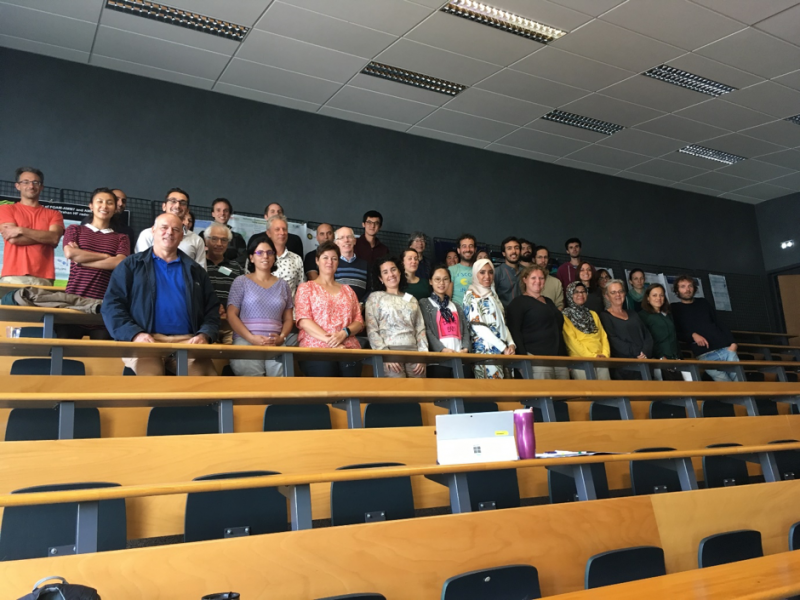International Summer School On Radio-Oceanography: Caen
Matteo Marasco
University of the Higlhands and Islands

I am grateful to Challenger Society, for the travel Award 2017, which massively contributed to finance my attendance to the International Summer School on Radio-Oceanography (ISSOR’17) in Caen (France). From 21st to 25th of August, I have been in the most remarkable radio-oceanography community of the world.
The first edition of the ISSOR’17 was specifically designed for postgraduate and post doc scientists involved in radar applications. This 5-days summer school focused on theoretical and practical fundamentals of 35 years of radar oceanography research, paying particular attention on the most recent developments. The program included lectures by a diverse set of international experts who are leaders in their fields. Each lecture covered a broad spectrum of problems related to radio-oceanography and different high frequency and x-band radar technologies, including analysis of sea states and upper ocean currents. The measurement validation steps and data processing methods for surface currents were taught using practical exercises based on two high frequency radar case studies: the Iroise marine renewable energy system and the American West Coast tsunami detection system. Further sessions on data assimilation techniques for the inclusion of numerical models and Doppler spectrum analysis were held.
I was delighted to be in this extraordinary young scientist community, where connections, exchange of ideas and cooperation were easy to establish. During the training, we had systematic breaks in order to have valuable conversations about the daily session and interesting non-scientific chats. Speakers were loquacious, friendly and open to any kind of question. This atmosphere made me feel comfortable and secure in such a specialised environment.
The exceptional science spread during those days has provided further motivation for my studies. I had the unique opportunity to talk with some of the best radar scientists, sharing with them questions and doubts about my research. I also had the chance to network with PhD students, which are exploring the radar technology from different prospective. Those meetings made a precious contribution to my personal experience. As an early researcher, the knowledge gained during the summer school gave me a better grasp of the radar technology and an excellent background to refine my research questions.
I would like also to thank both Environmental Research Institute and UHI for enabling me to attend the summer school.
Profile:
I am currently undertaking the second year of my PhD studies exploring coastal High Frequency Radar system as a novel method of monitoring tidal currents and estimating residual circulation in the Fair Isle Gap.
Latest News
Royal Society Publishing Photography Competition 2025
Please see a message from the Royal Society below:
We are delighted to announce that the 2025 Competition is now open for entries until 15 August for a chance to win £1000! The competition celebrates the power of photography in conveying the wonder of science happening all around us and photographs can be submitted in the categories of: Astronomy, Behaviour, Earth Science and Climatology, Ecology and Environmental Science, and Microimaging.
The competition is free to enter and open to anyone studying or working in science at graduate level or above. Category winners will receive a one-year membership to the Royal Photographic Society and the overall winner will receive a grand prize of £1,000. Find out more: https://bit.ly/RSPphotocomp
October 2025 MEDIN Workshop: Marine Data Management, Governance and the MEDIN toolset
The Marine Environmental Data and Information Network (MEDIN) are pleased to announce that registration is now open for the next occurrence of our popular free online training workshop: ‘Marine Data Management, Governance and the MEDIN toolset’ on the 13th – 17th October 2025 on OceanTeacher Global Academy.
Marine Data Management, Governance and the MEDIN toolset
The Marine Environmental Data and Information Network (MEDIN) and OceanWise are delighted to invite you to attend our popular free online training workshop: ‘Marine Data Management, Governance and the MEDIN toolset’ on the 19th – 23rd of May 2025.
